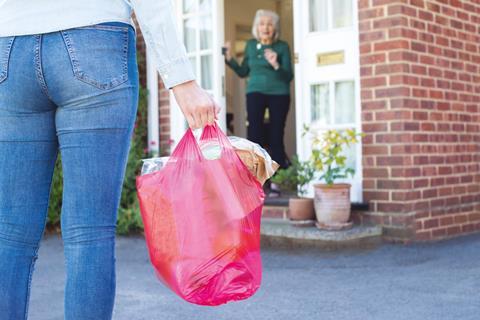
There are few things that say church and community more than a meal train. If you’ve not heard of it, it’s the practice of providing a rota of meals for church members who are going through a major life occurrence.
I experienced this for the second time recently as different members of my church family turned up at our house every day for two weeks following the birth of our second son.
They came bringing gifts of lasagne and chilli con carne, casseroles and tagines. In those blurry post-partum days, when I was in a newborn bubble tinged with the identity crises and PTSD that many new mothers face, seeing the familiar faces of our friends rallying around us was life-giving.
When you belong to a church that is truly reflective of the kingdom of God, such kindnesses become normal – expected, even. But as I have got to know many new mums over the years, I have realised that most people do not have examples of such self-sacrifice.

Yes, people have friends and family, but it is rare – and countercultural – to belong to a multigenerational community, filled with people from different backgrounds, who love you so well.
During the Covid-19 lockdowns, many of us became drawn into our local communities. As each of us faced this global existential crisis and went through a collective trauma, WhatsApp and mutual aid groups sprung up in streets and towns.
We recognised anew that we long to see and be seen by others. There is something divine to be found in those sparks of human connection. Beautiful things happen when we are in relationship with our neighbours.
This is what Church is about. It is a community of believers who love each other and share what they have – including life’s burdens – who provide for each other, offering a helping hand and a listening ear.
We have seen this since Acts 2:45 as those in the early Church, shared with “anyone who had need” (v45). This is what marks the Christian community out from others. As Jesus himself said in John 13:35: “By this all people will know that you are my disciples, if you have love for one another” (ESV).
At the centre of our faith is this idea of incarnation – that God becomes like us, suffering with us in our darkest moments and celebrating with us in times of joy. So we should follow Christ’s example and come alongside each other.
Our communities have been through so much in the past few years. Brexit and the Black Lives Matter movement highlighted the divisions that exist; the pandemic showed us that we need each other – that our common humanity is far more important than that which divides us.
In times of crisis, the Church needs to recommit itself to being a place of hope-filled community. Yes, there is a time for doctrine and theology, for teaching people about the tenets of faith and asking them to sign up to that.
But what will draw people to us is our sense of community and genuine love for each other. And sometimes, people will belong before they believe. In Acts 2, this radical community “added to their number” daily (v41). Perhaps a meal train is one of our greatest evangelistic tools.





































